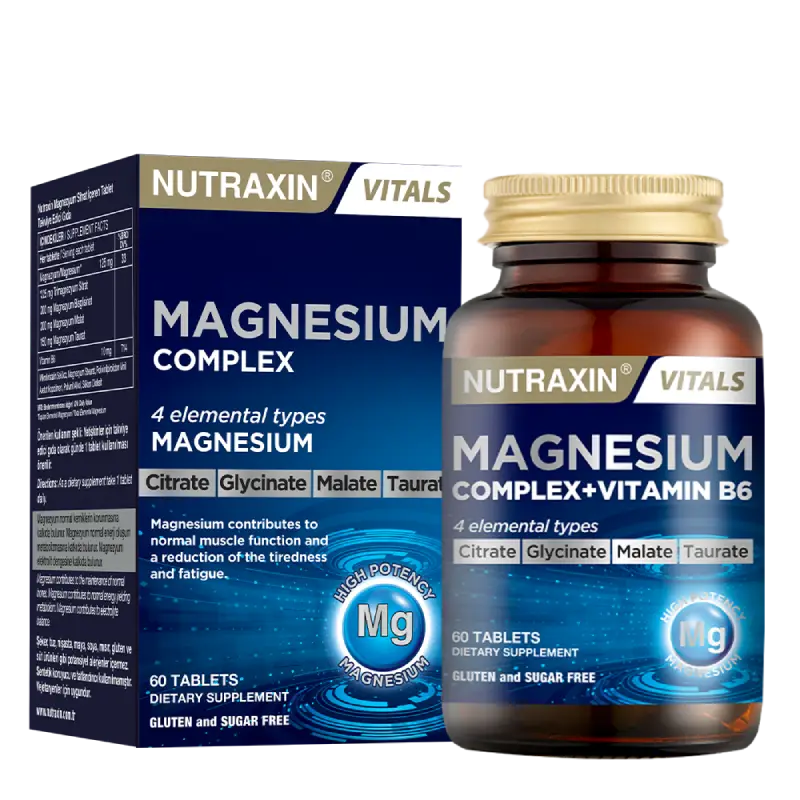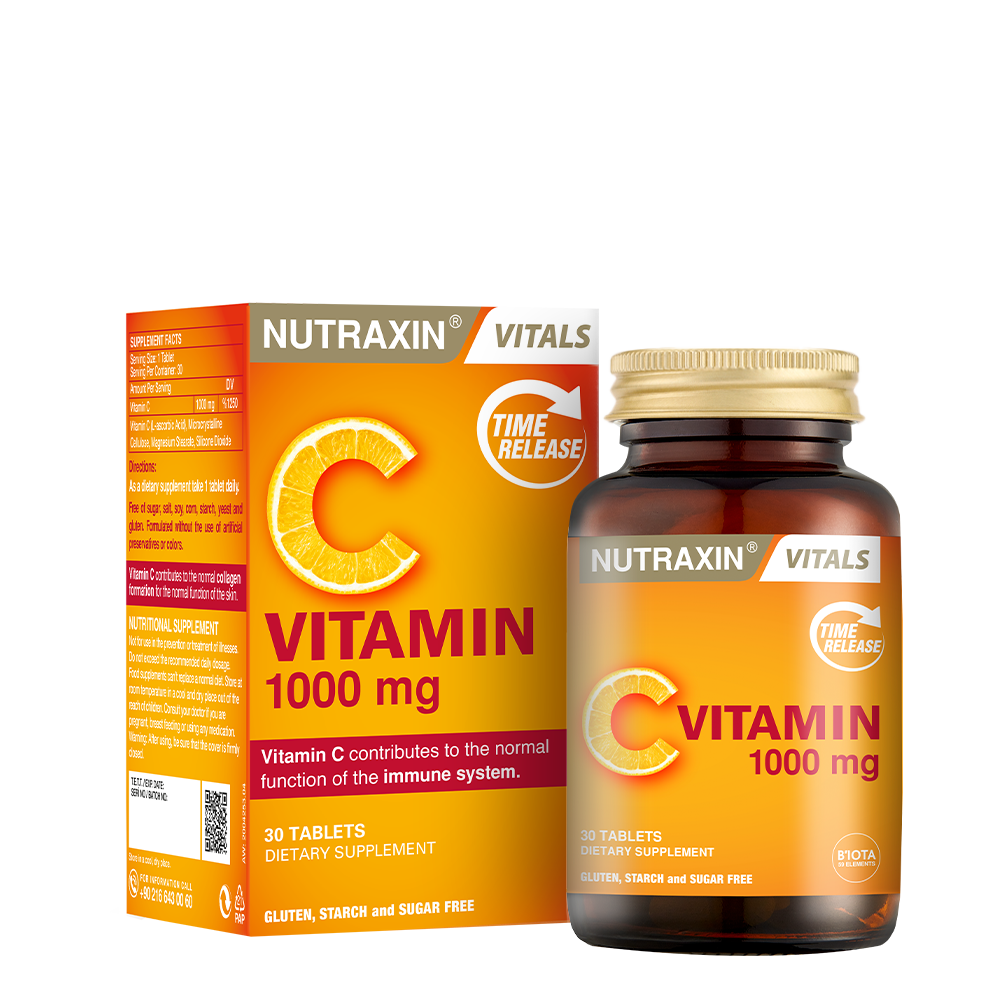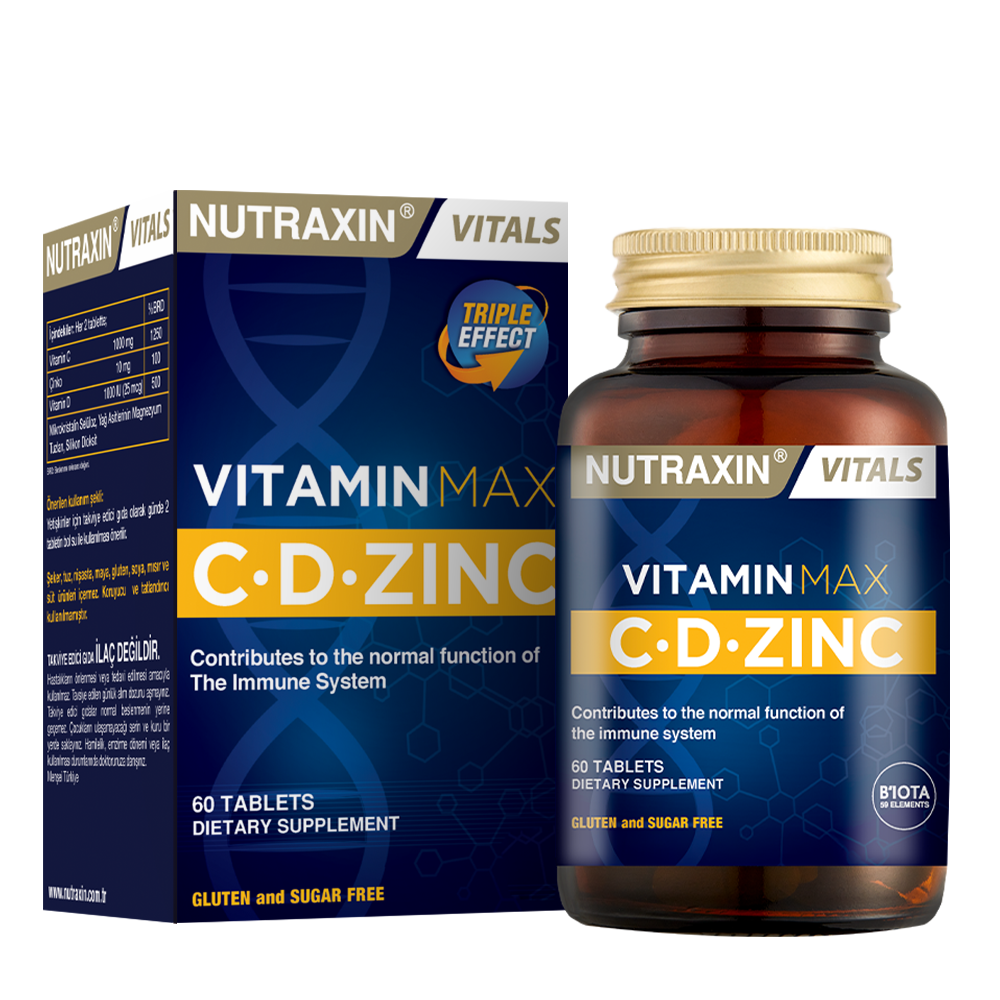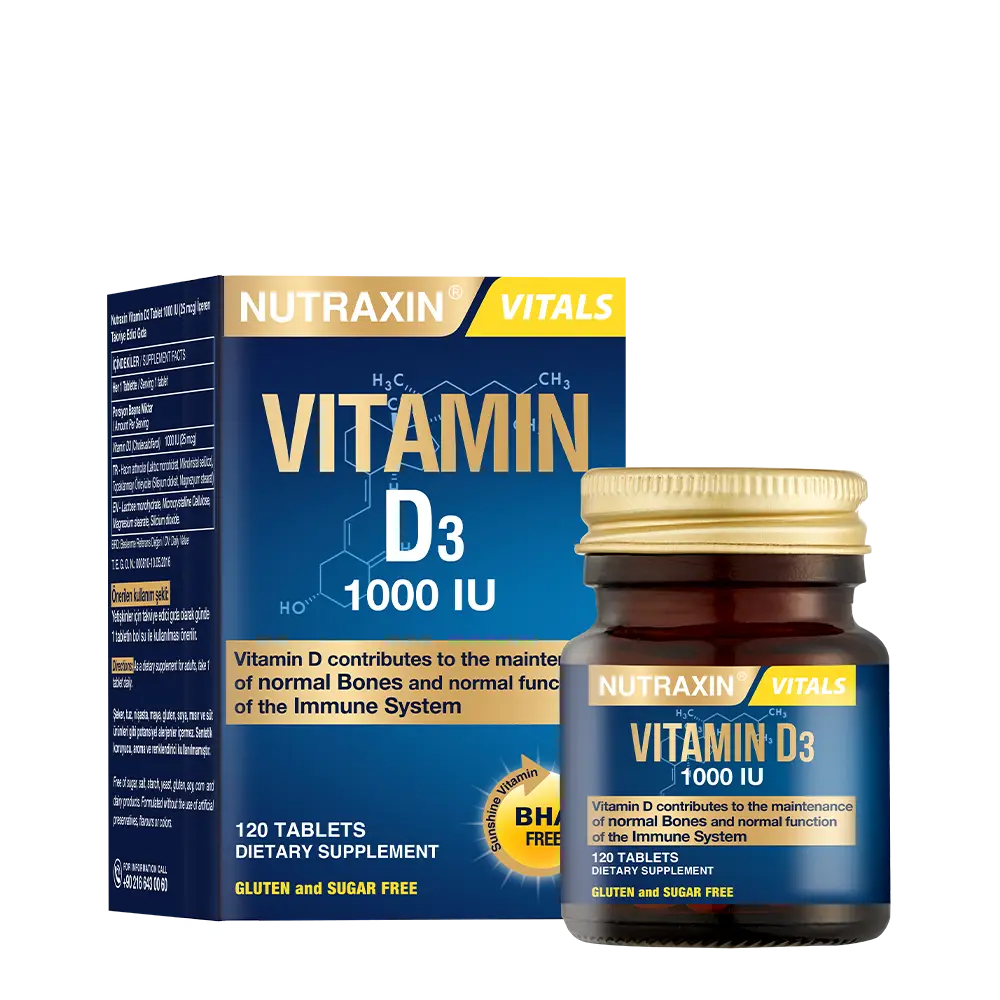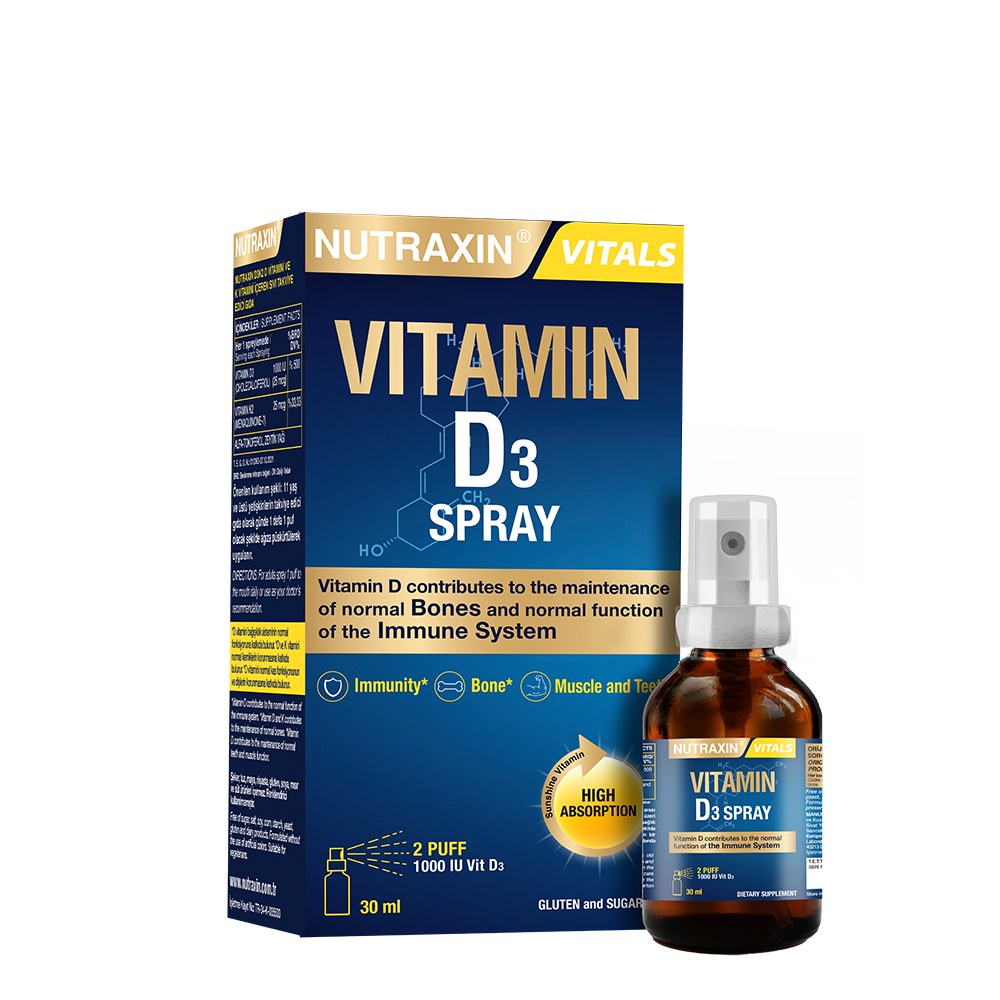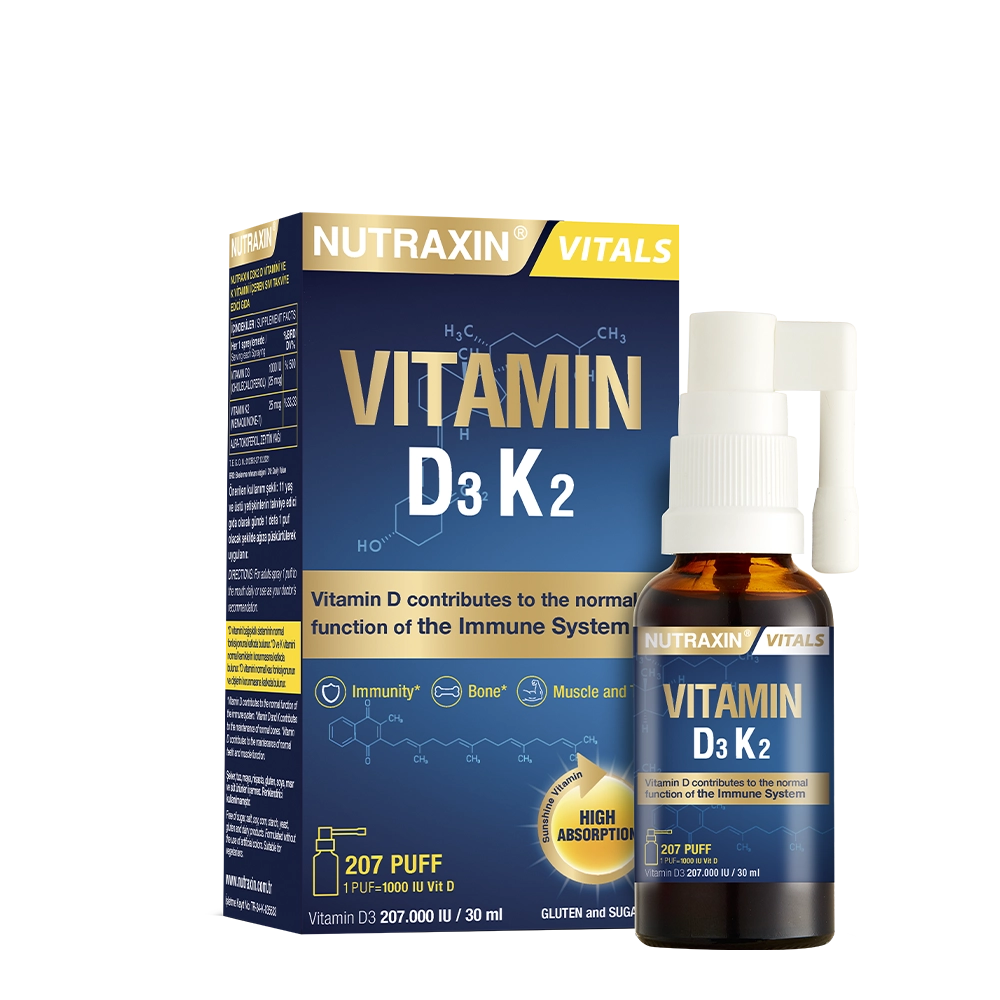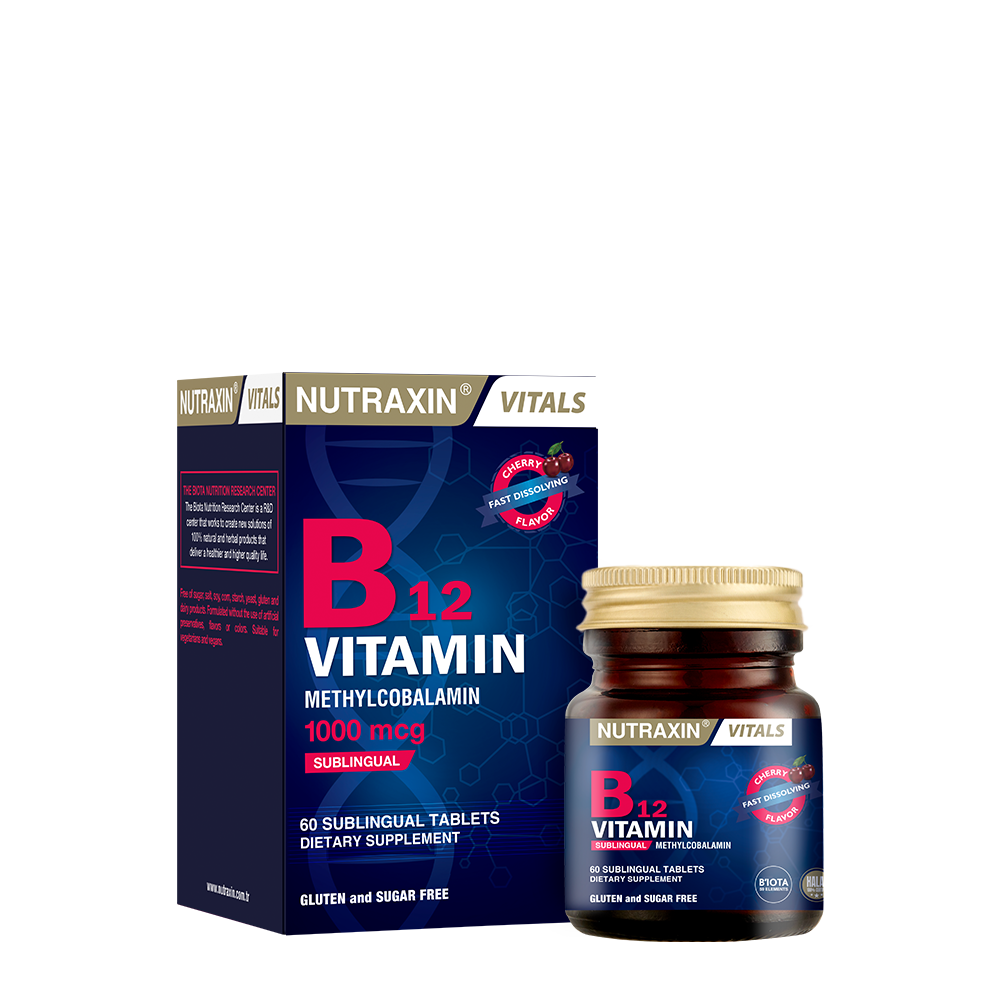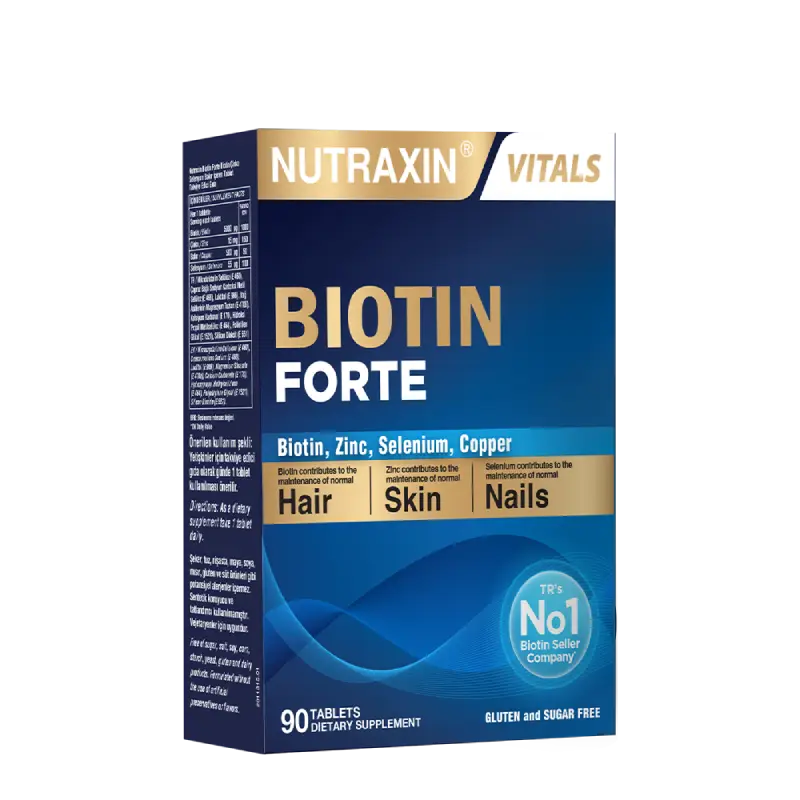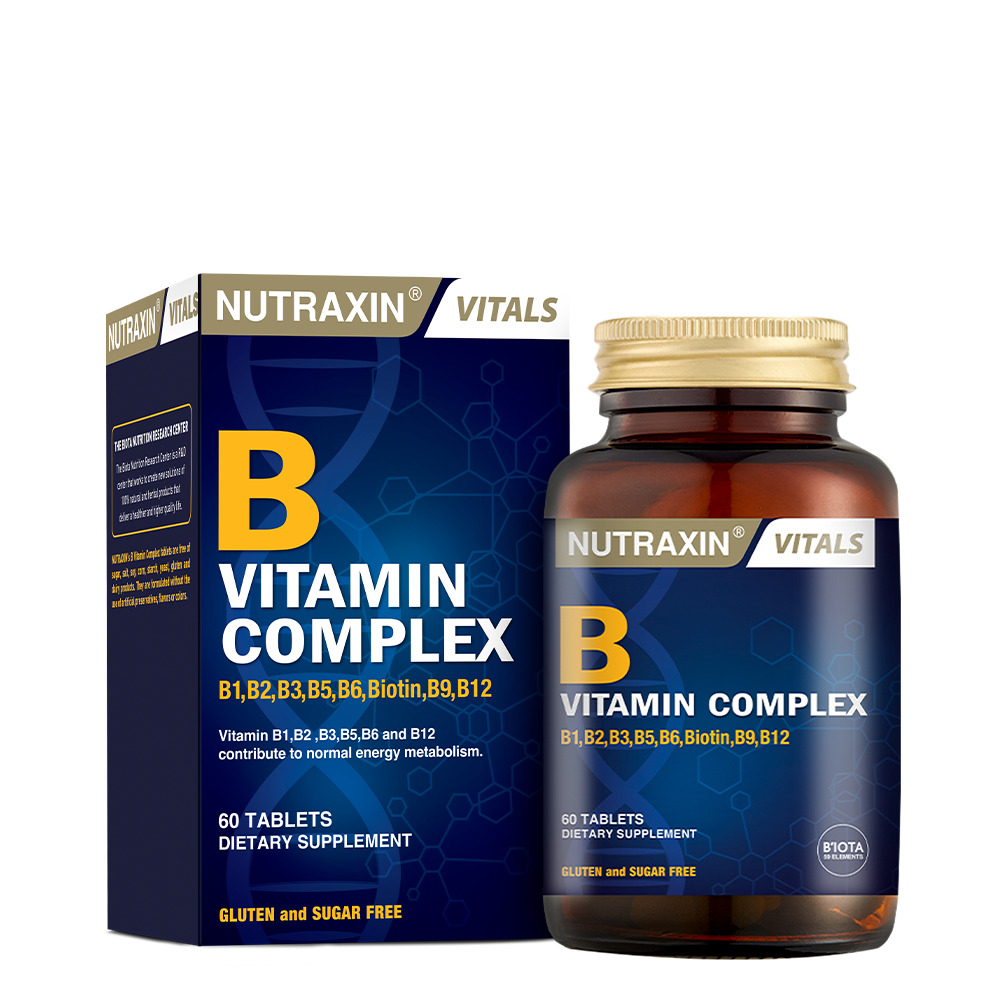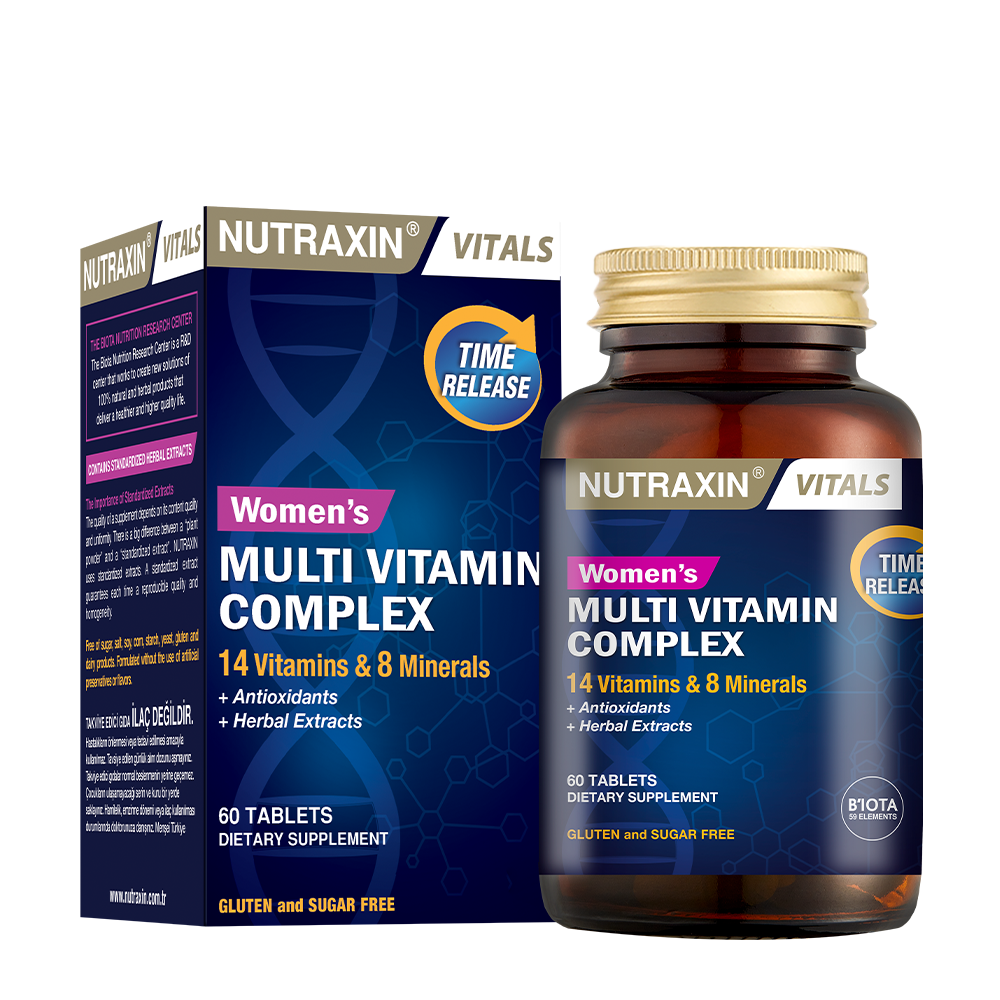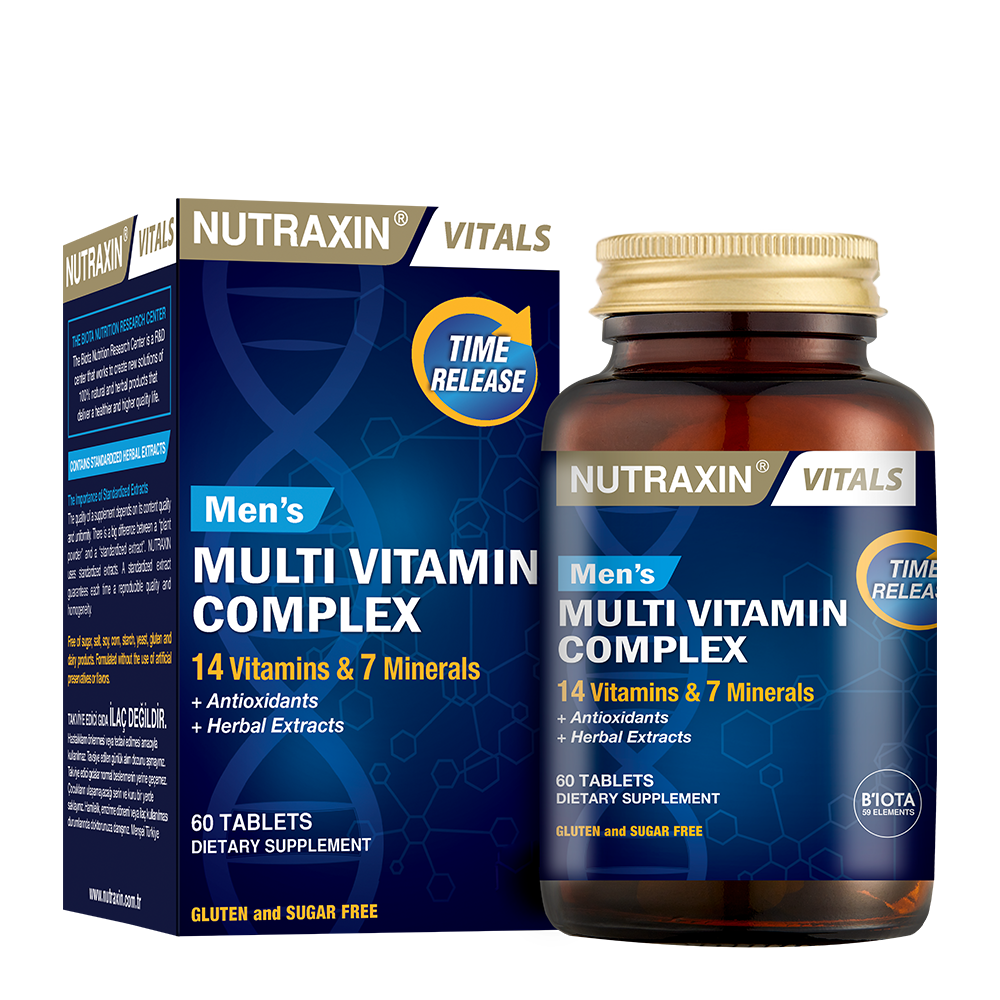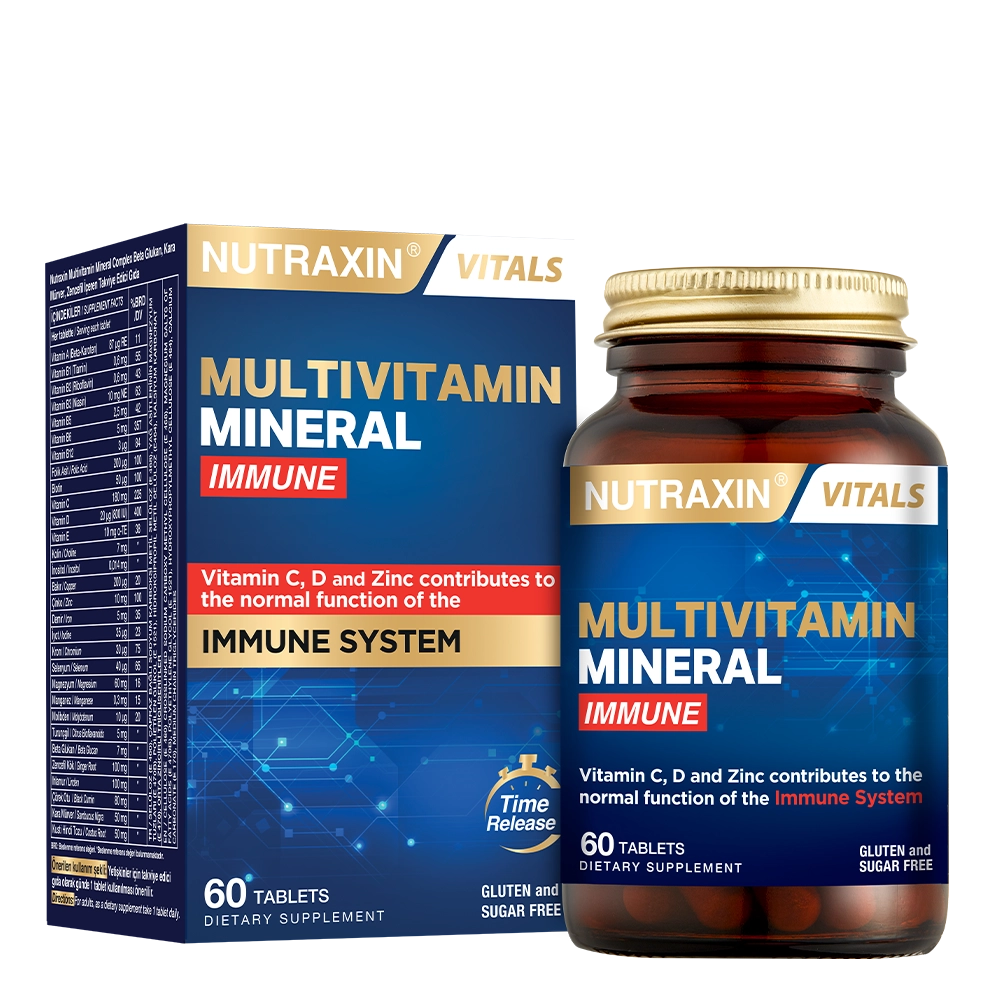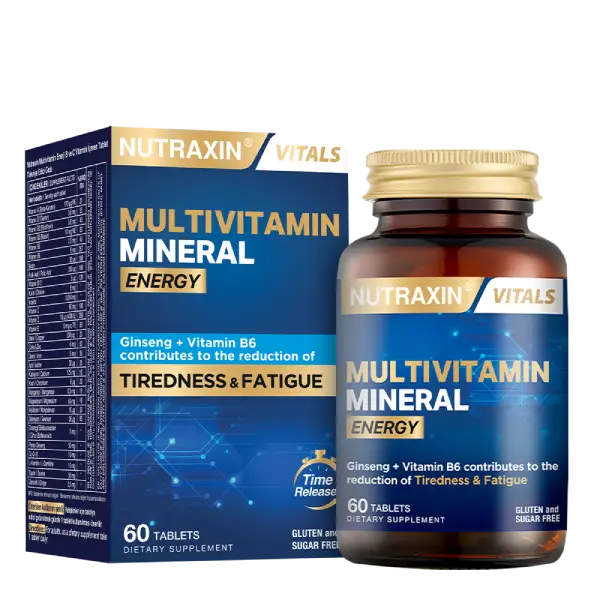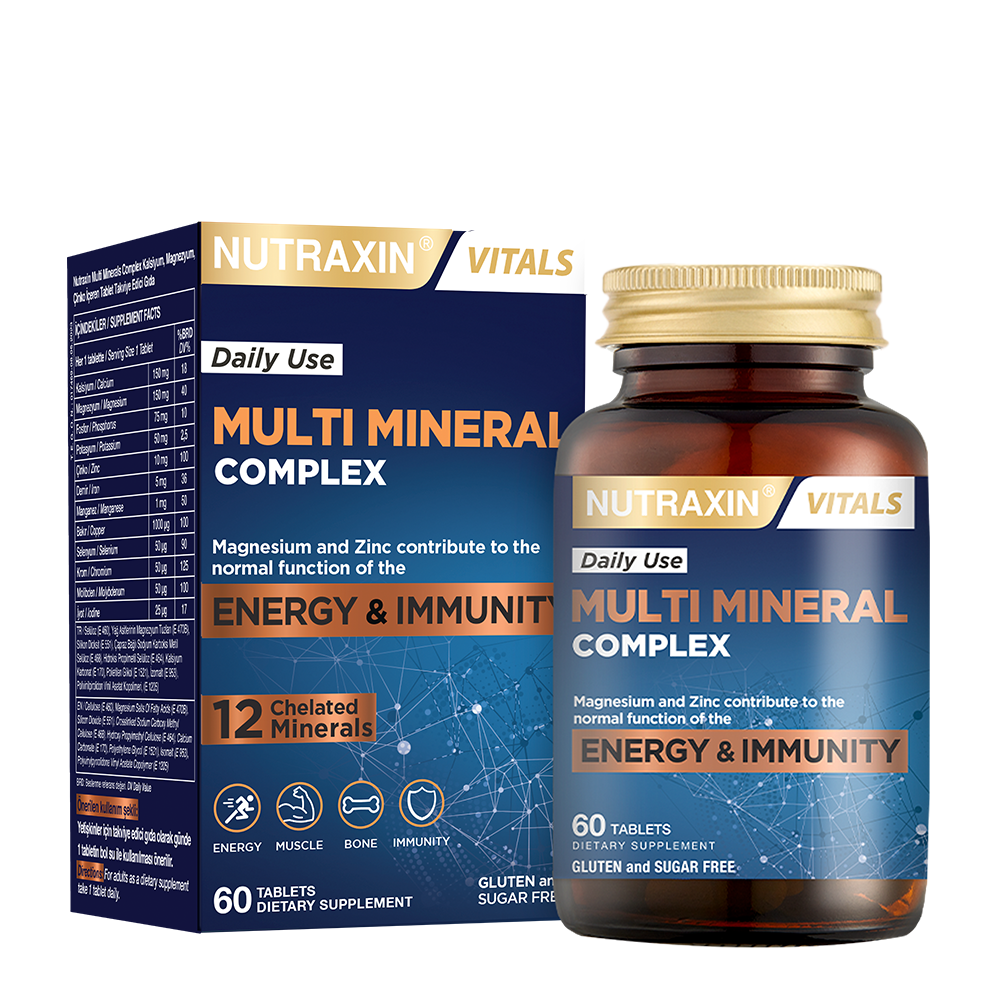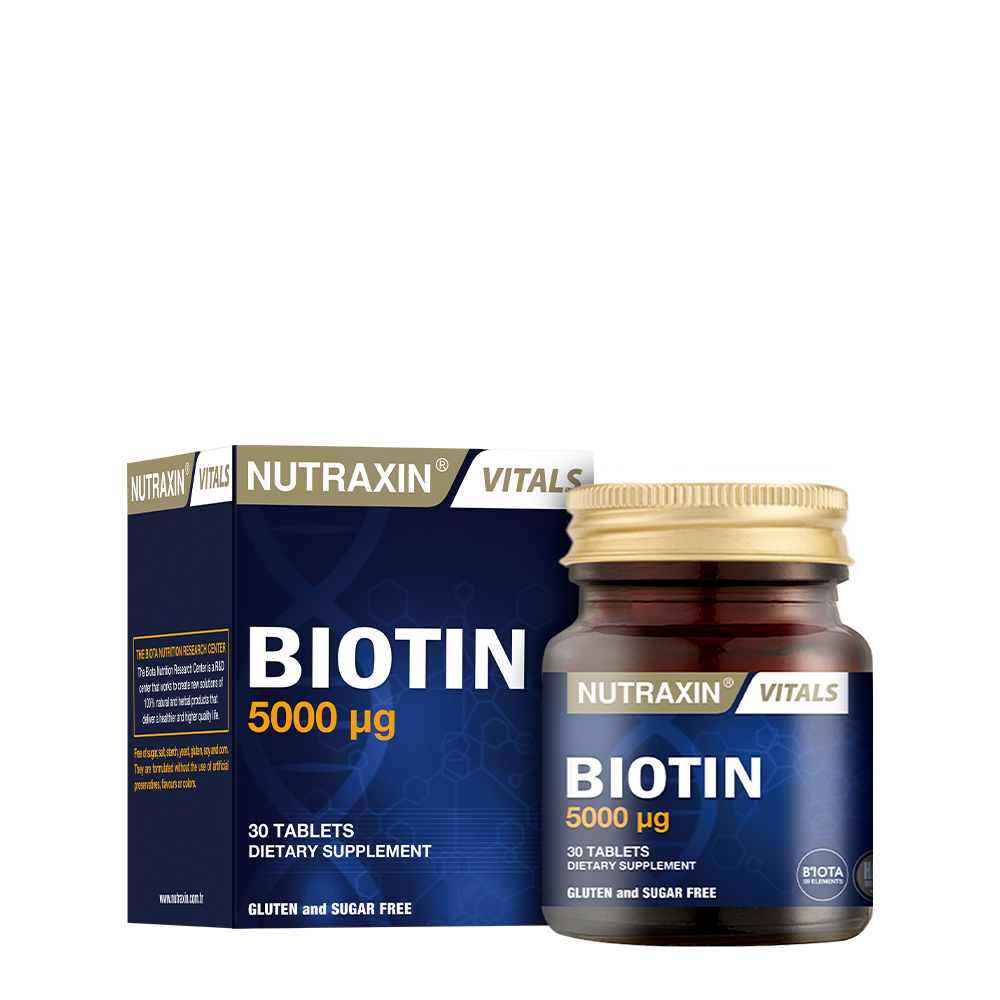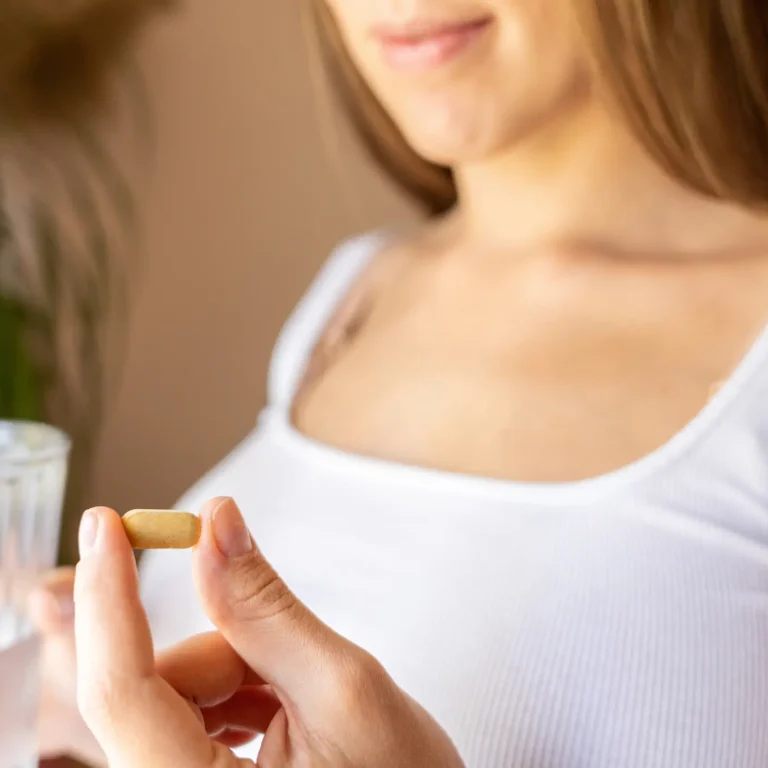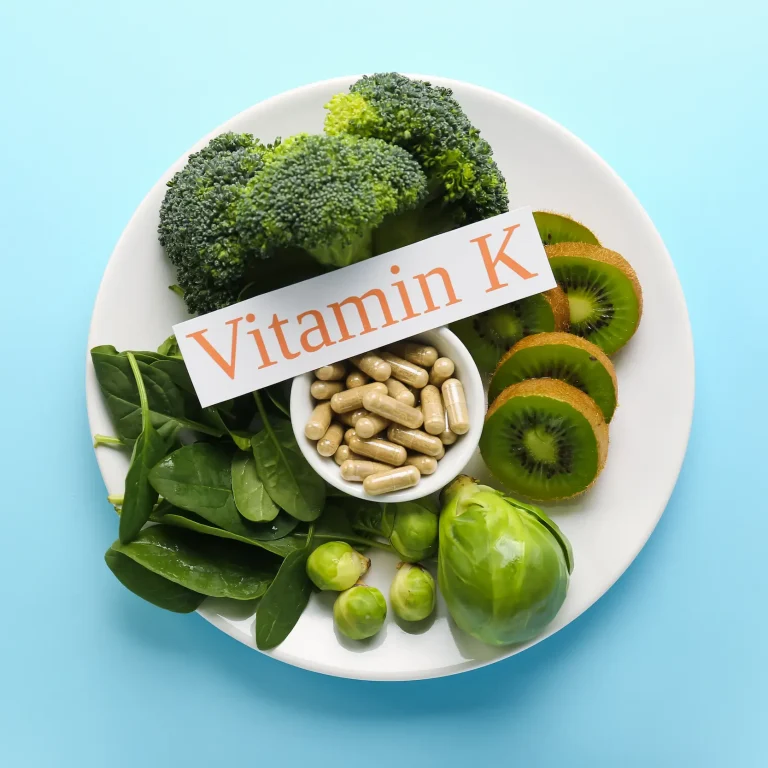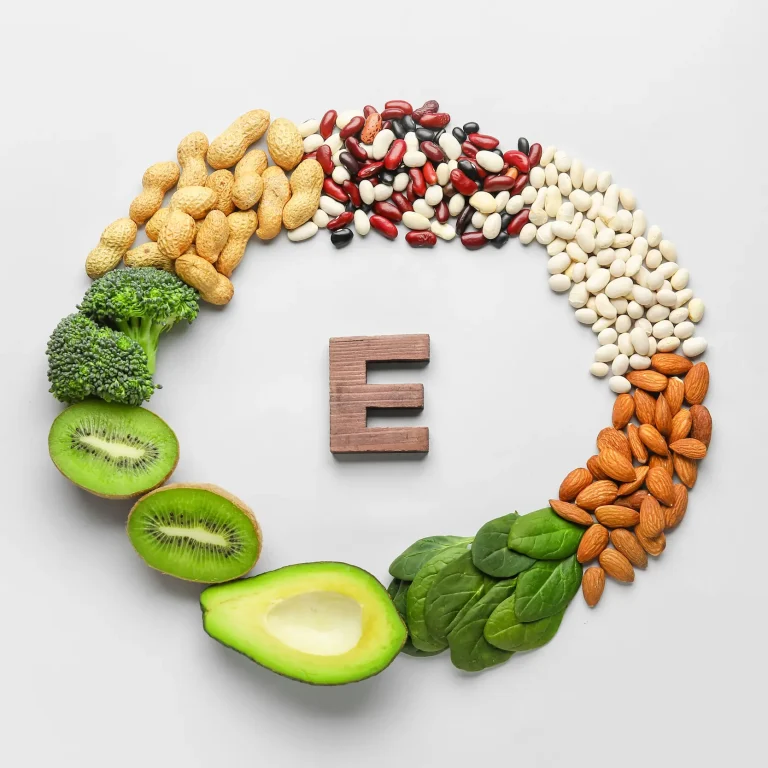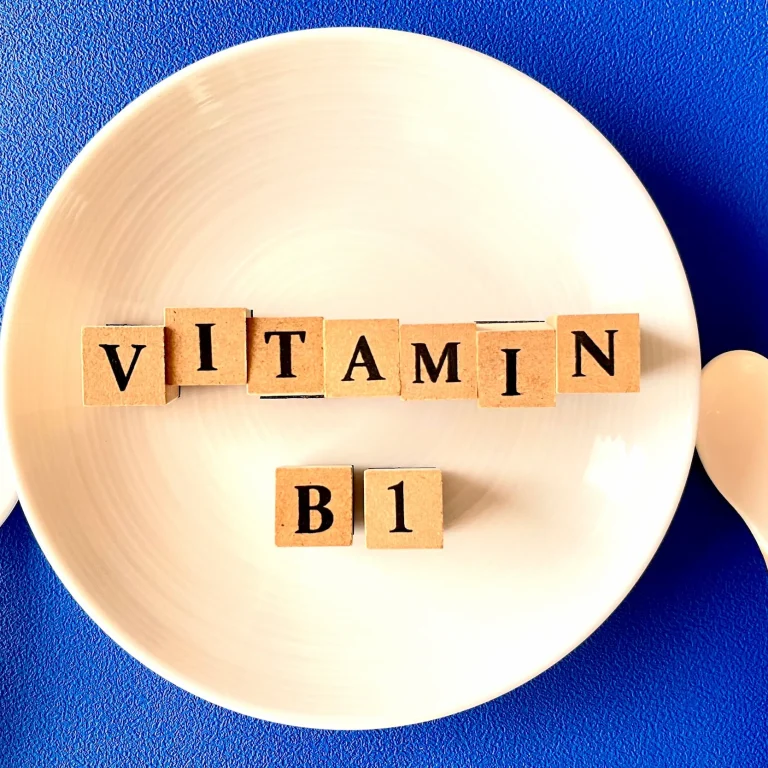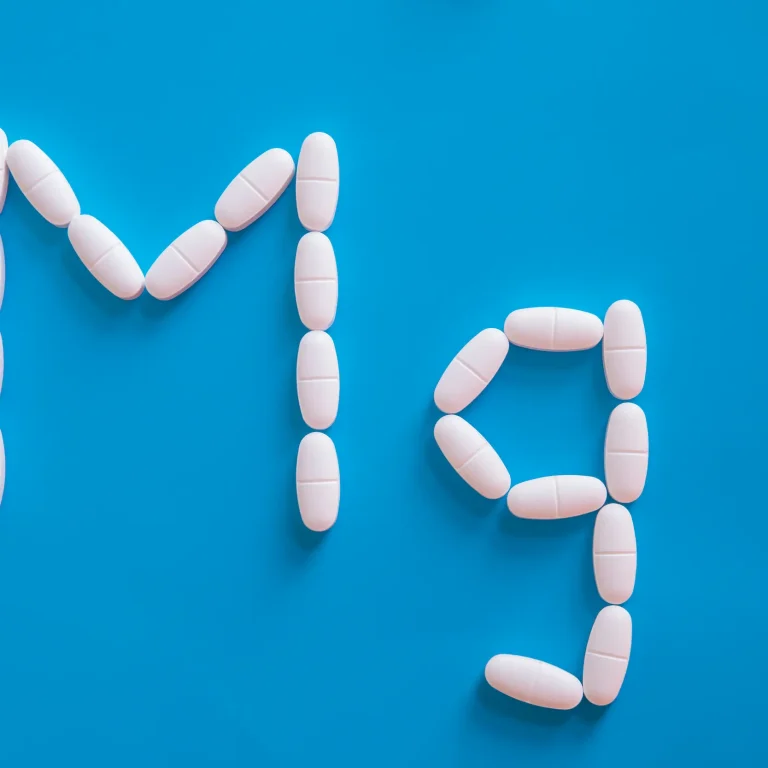Vitamin B Complex Tablets
Thiamine (Vitamin B1) contributes to normal energy-yielding metabolism.
Riboflavin (Vitamin B2) contributes to the reduction of tiredness and fatigue.
Niacin contributes to the maintenance of normal skin.
Vitamin B6 contributes to normal protein and glycogen metabolism.
Vitamin B12 contributes to normal homocysteine metabolism.
Choline contributes to the preservation of normal liver function.
Amount Per Serving
| Vitamin B1 (as Thiamine Hydrochloride) | 50 mg | |
| Vitamin B2 (Riboflavin) | 50 mg | |
| Vitamin B3 (Niacin) | 50 mg | |
| Vitamin B5 (Pantothenic Acid) | 50 mg | |
| Vitamin B6 (Pyridoxine) | 10 mg | |
| Vitamin B12 (as Cyanocobalamin) | 22 mcg | |
| Folic Acid | 400 mg | |
| Biotin (D-biotin) | 300 mcg | |
| Choline bitartrate | 13,5 mg | |
| Inositol | 33 mg |
Bulking agent (Micro Crystal cellulose), D-pantothenate calcium, Herbal capsule (Hydroxypropyl methylcellulose), Thiamin hydrochloride, Riboflavin, Nicotinamide, Inositol, Choline (choline bitartrate), Pyridoxine hydrochloride, Anti-coagulant (Magnesium salts of fatty acids, Silicon dioxide), Cyanocobalamin, Folic acid.
- Supplement Facts
-
Amount Per Serving
Vitamin B1 (as Thiamine Hydrochloride) 50 mg Vitamin B2 (Riboflavin) 50 mg Vitamin B3 (Niacin) 50 mg Vitamin B5 (Pantothenic Acid) 50 mg Vitamin B6 (Pyridoxine) 10 mg Vitamin B12 (as Cyanocobalamin) 22 mcg Folic Acid 400 mg Biotin (D-biotin) 300 mcg Choline bitartrate 13,5 mg Inositol 33 mg - Other Ingredients
-
Bulking agent (Micro Crystal cellulose), D-pantothenate calcium, Herbal capsule (Hydroxypropyl methylcellulose), Thiamin hydrochloride, Riboflavin, Nicotinamide, Inositol, Choline (choline bitartrate), Pyridoxine hydrochloride, Anti-coagulant (Magnesium salts of fatty acids, Silicon dioxide), Cyanocobalamin, Folic acid.
Information
Does not contain potential allergens such as sugar, starch, salt, yeast, gluten, soy, corn and dairy products. No synthetic colourants, sweeteners and preservatives were used.
Usage
Dietary supplement for adults, recommended to take 1 tablet a day with plenty of water.
Are B vitamins safe?
It’s important to follow the recommended usage on the product label. Individuals with specific health conditions or those taking medications should consult a healthcare professional to ensure safety and appropriateness for their needs.
Can you get enough B vitamins from food?
It is possible to get enough B vitamins from a balanced diet rich in whole foods. Key sources of B vitamins include whole grains, meat, fish, eggs, dairy products, legumes, and leafy green vegetables. Eating a diverse diet that includes these foods can help ensure adequate intake of all essential B vitamins. However, individuals with specific dietary restrictions or health conditions may need to consider supplementation.
Are B complex vitamins worth taking?
B complex vitamins are essential for energy production, brain health, and red blood cell formation. Each B vitamin plays a unique role:
- B1 (Thiamine) : Supports nerve function.
- B2 (Riboflavin) : Aids in energy metabolism.
- B3 (Niacin) : Promotes healthy skin and digestion.
- B5 (Pantothenic Acid) : Important for hormone synthesis and metabolism.
- B6 (Pyridoxine) : Essential for amino acid metabolism.
- B7 (Biotin) : Essential for fatty acid synthesis and the metabolism of carbohydrates and proteins.
- B9 (Folic Acid) : Crucial for DNA synthesis and cell division.
- B12 (Methylcobalamin) : Crucial for nerve health and DNA synthesis.
